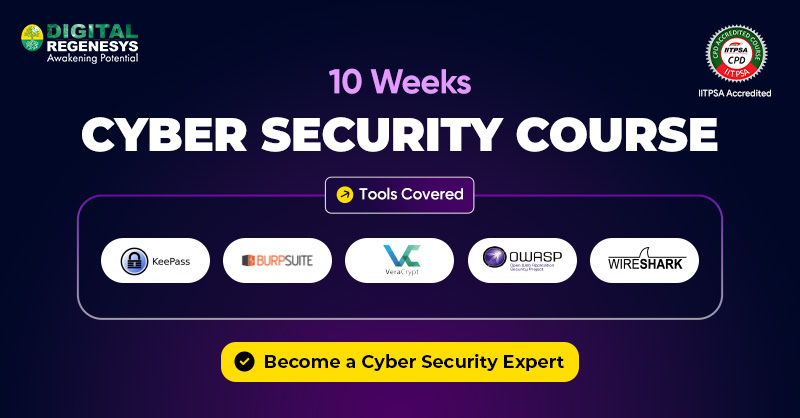Why Enrol in a Cybersecurity Law Online Course?

Cybersecurity law is becoming one of the most crucial areas of study in the digital world. As cyber threats increase, governments and businesses are turning to legal experts who understand digital regulations, data privacy, and compliance frameworks. A cybersecurity law online course provides learners with the knowledge to navigate complex cybercrime laws, protect sensitive information, and ensure organisational security. Whether you are a legal professional, IT specialist, or compliance officer, this field offers new career opportunities and equips you with practical skills that are in demand worldwide.
In this article, we will explore why enrolling in a cybersecurity law online course is valuable, what you can expect to learn, and how it can shape your career.
The Growing Need for Cybersecurity Law
In the digital-first environment, data breaches, ransomware, and online fraud are no longer rare events. Every organisation, whether a government body, financial institution, or small business, faces risks when handling digital information. As a result, understanding the laws that govern cyberspace has become more important than ever.
Cybersecurity law connects the worlds of technology and regulation. It safeguards individuals and organisations from digital threats while ensuring adherence to both national and global standards. Without this knowledge, organisations can face lawsuits, reputational damage, and financial penalties.
Here are some reasons why cybersecurity law is gaining so much attention globally and in South Africa:
- Rise in cybercrime cases – Reports show that phishing, identity theft, and ransomware attacks are increasing at alarming rates, making businesses vulnerable.
- Strict data protection regulations – South Africa’s Protection of Personal Information Act (POPIA) and international frameworks like GDPR require businesses to comply with stringent data privacy rules.
- Demand for specialised expertise – There is a growing need for professionals who can combine technical understanding with legal insight to protect digital assets.

What does a Cybersecurity Law Online Course Cover?
Before enrolling, many professionals wonder what exactly is taught in a cybersecurity law course. These courses are designed to balance legal principles with real-world application, ensuring that learners are prepared to face modern challenges in digital law.
The following are some of the key areas covered in such a course:
- Data Protection and Privacy Laws – You will study how regulations like POPIA and GDPR shape the way organisations collect, store, and use personal information.
- Cybercrime and Digital Offences – This includes laws related to hacking, identity theft, unauthorised access, and fraud, helping learners understand how such crimes are investigated and prosecuted.
- Compliance and Governance – Courses often focus on how companies can design internal policies to meet legal standards and avoid penalties.
- International Cybersecurity Regulations – Learners gain insights into how different countries handle cybersecurity, preparing them for cross-border legal issues.
- Case Studies and Practical Applications – Many courses include real-world examples, making it easier to connect theory with practice.
Read on Importance of Cybersecurity in South Africa: Learn More in this Guide here!
Benefits of Enrolling in a Cybersecurity Law Online Course
Enrolling in an online cybersecurity law course provides learners with more than just legal knowledge. It gives them practical tools, flexibility, and a competitive edge in their careers.
Here are the main benefits:
- Flexibility and Accessibility – With online courses, you can learn at your own pace and from any location. This convenience makes it simpler for both students and working professionals to balance studies alongside work or personal responsibilities.
- Career Advancement Opportunities – Gaining knowledge in cybersecurity law opens doors to roles in law firms, corporate compliance, government agencies, and IT companies.
- Up-to-date Knowledge – Courses are regularly updated with new case studies, reflecting the latest trends and laws in cybersecurity.
- Affordability and Convenience – Compared to in-person programmes, online courses are often more cost-effective and eliminate the need for travel.
- Cross-disciplinary Advantage – Professionals from both legal and IT backgrounds can strengthen their profiles by gaining knowledge in an area that merges law and technology.
Read more on Why Study Cyber Security?- Know the Benefits Here!
Who Should Consider This Course?
Cybersecurity law is not limited to lawyers or IT specialists. The course is designed for a wide range of professionals who need to understand how digital laws affect their fields.
The following groups will benefit most from enrolling:
- Legal Professionals – Lawyers, paralegals, and law students who want to specialise in technology law or digital rights.
- IT and Cybersecurity Specialists – Professionals who manage networks, systems, and sensitive data but want to add legal knowledge to their technical expertise.
- Compliance Officers – Employees responsible for ensuring their organisations follow laws and regulations can strengthen their skills with updated cybersecurity knowledge.
- Business Leaders and Entrepreneurs – Those running businesses can benefit from understanding how digital laws impact contracts, data storage, and client protection.
Career Opportunities After Completion
Completing a cybersecurity law online course equips you with a unique blend of digital awareness and regulatory knowledge. While senior legal or compliance roles may take time, learners can begin with entry-level IT and cybersecurity positions that give them practical experience in applying what they have learnt.
Here are some entry-level cybersecurity career options to explore:
- IT Support Technician (Cybersecurity Focus) – Assisting with basic security tasks such as password management, access control, and supporting users with security-related queries.
- Cybersecurity Intern – Gaining hands-on exposure by assisting teams with simple risk assessments, compliance checks, and basic security documentation.
- Information Security Assistant – Helping with tasks like maintaining security logs, tracking incidents, and ensuring that company policies follow data protection requirements.
- Network Security Trainee – Supporting senior IT staff in updating firewalls, checking network vulnerabilities, and ensuring safe handling of digital information.
Why Choose an Online Format?
Many professionals hesitate between classroom learning and online study. However, the online format is particularly suitable for cybersecurity law because it blends convenience with quality education.
The following are strong reasons why an online format works well:
- Cost-Effective Learning – Online courses generally have lower fees than traditional classes while offering the same level of quality.
- Self-Paced Study – You can progress according to your own schedule without disrupting work or family commitments.
- Access to Global Perspectives – Online learning often brings together instructors and students from different countries, allowing you to learn how other regions handle cybersecurity law.
- Resource Availability – Recorded lectures, online libraries, and digital case studies can be accessed anytime, ensuring continuous learning.
Know Why Choose Cyber Security as a Career: Complete Guide here!

Conclusion
Cybersecurity law is no longer a niche subject; it is an essential skill set for today’s professionals. As online threats grow, organisations need people who understand the legal and regulatory side of technology. Enrolling in a cybersecurity law online course equips you with knowledge of data protection, compliance, and cybercrime laws – skills that are valuable across industries.
At Digital Regenesys, we offer a Cybersecurity course designed to provide you with practical and up-to-date knowledge in cybersecurity. Our course is tailored for both beginners and professionals, helping you advance your career in law, IT, and compliance. If you are ready to take the next step towards becoming a sought-after professional in the digital age, enrol in our Cybersecurity course today.
Last Updated: 14 October 2025
